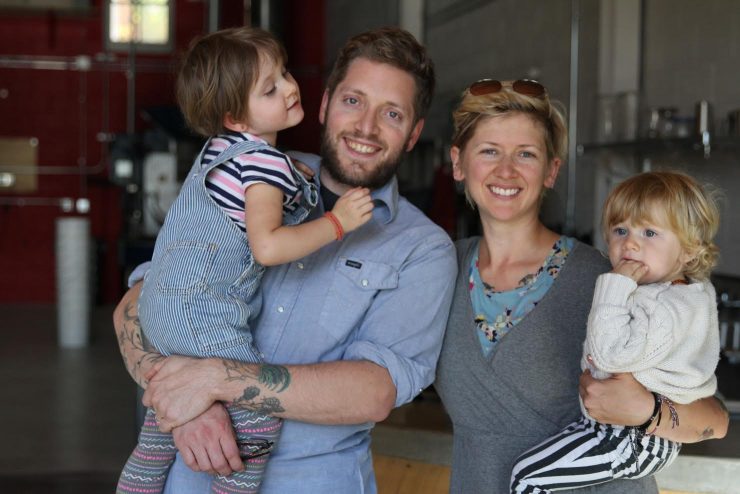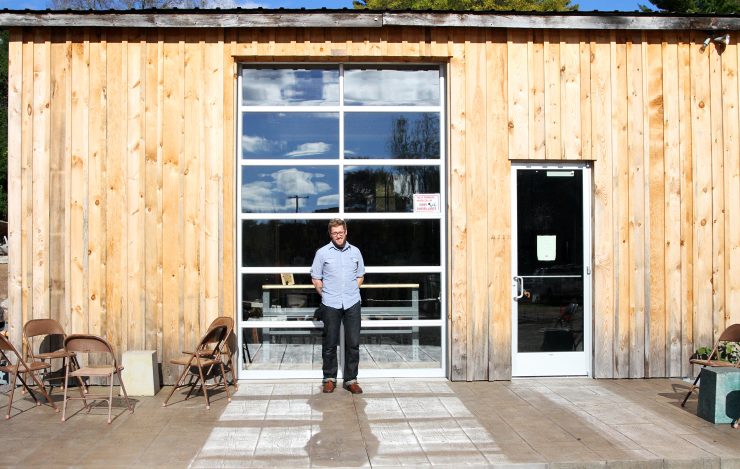
They say you can’t go home again, but year after year, life change after life change, we see it happen. Displaced Californians yearn for the sea breeze and fruity abundance of their home coast. People trying out Portland for a year shuffle on back to Buffalo. All the Michiganders in Chicago consider reinvesting in Detroit—and folks from Central Wisconsin like Jared Linzmeier? Well, they might just pack up a world of specialty coffee experience—and their young family—and return to their native woodsy lands, ready not only to come back to Wisconsin but to give back to the communities within.
In 2013, along with his wife Deanna Linzmeier, then-baby girl Addie Rose and a lot of inspiration, Linzmeier, who grew up in towns around Stevens Point, Wisconsin, packed up and moved home. He and his wife moved back into his family’s Amherst, WI farmhouse, set up his roaster—a green 10-Kilo Sasa Samiac—in the adjacent barn, and with the help of a credit card, began to buy and roast coffee. He named his company Ruby Coffee Roasters, after his sassy octogenarian grandma, Ruby Szitta.
The endeavor was enough to lure out West-Coaster Matthew Williams, whose past adventures included Verve Coffee Roasters in Santa Cruz and stints at Stumptown and Four Barrel further up the coast. Williams helps Linzmeier run Ruby along with Tommy Enright, who also operates Black Rabbit Farm with his wife, Samantha Enright, in Amherst. And of course, Linzmeier credits his wife Deanna with an ongoing and invaluable advisory role—someone to talk it all through with.
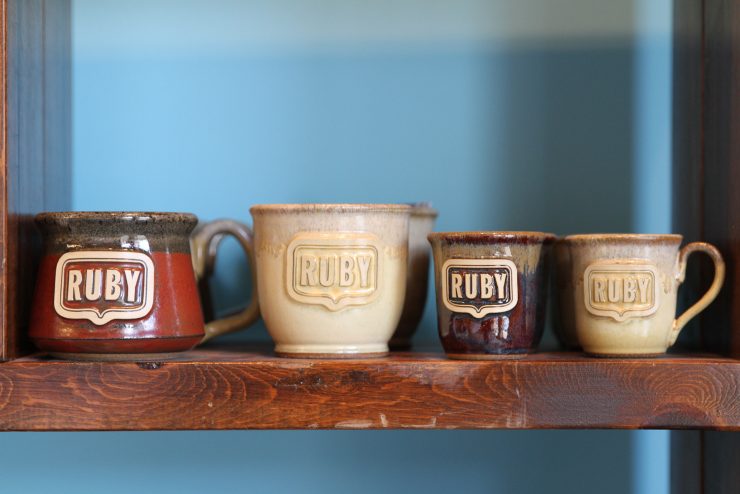
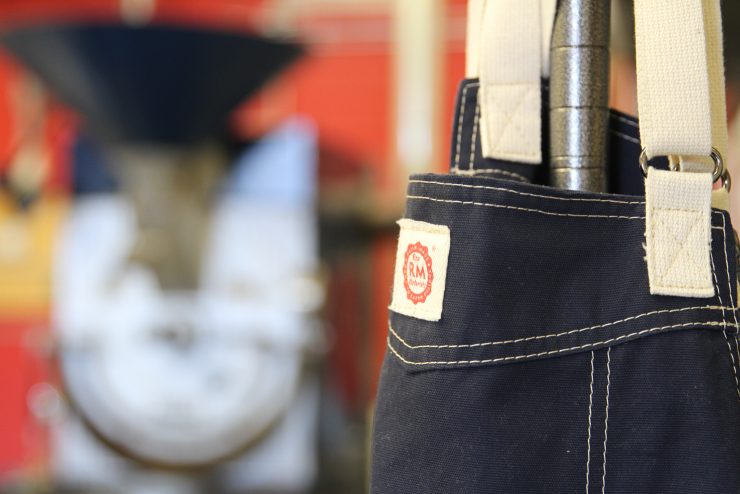
What’s surprising about Ruby isn’t so much that Linzmeier—a veteran of Intelligentsia Coffee in Los Angeles and Caffe Ladro in Seattle—has built a successful, quality-driven small coffee business in the deer fields of Wisconsin, but rather that he’s built such a nationally respected brand so physically far away from most of his customers. Linzmeier estimates that, incredibly, only about a third of his business at the moment comes from within the state of Wisconsin. Offering a stable of seasonal, market-priced specialty coffees in an existing (or saturated) market like Portland, OR, or Brooklyn, is one thing. Doing it out of a barn in Amherst, Wisconsin (population 1,042) is quite another.
For Linzmeier, it was a risk worth taking. He was drawn back not only by his love of home, but of the potential he saw in the region now that he was an adult. “Amherst is just our community,” said Linzmeier. “There’s a lot of renewable energy stuff happening there, hippies and artists, small farmers and all that stuff. It’s really interesting to come back to the same place and have a very different experience.”
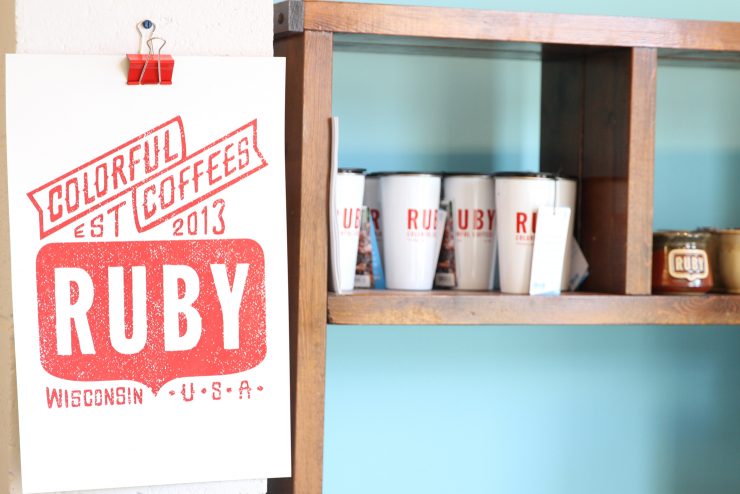
Ruby’s “colorful coffees” slogan is a testament to Linzmeier’s seasonal roster of coffees, many of whom he purchases through longstanding relationships that predate the founding of his own company. Besides his roasting style, he’s tried to set Ruby apart by “the way that I compose the menu throughout the year,” says Linzmeier. “I think it’s an interesting variety of coffees that we feel strongly about.”
Earlier this spring, Linzmeier moved Ruby out of his family home and into a former precast concrete shop in the neighboring village of Nelsonville (population 155). A 1979 Probat G25 was added to the roasting operations, and the airy front room, flooded with natural light, plays host to a tasting room on Saturday mornings, where the latest Ruby roasts can be sampled from a La Marzocco GS/3 or via pour-over filter methods.
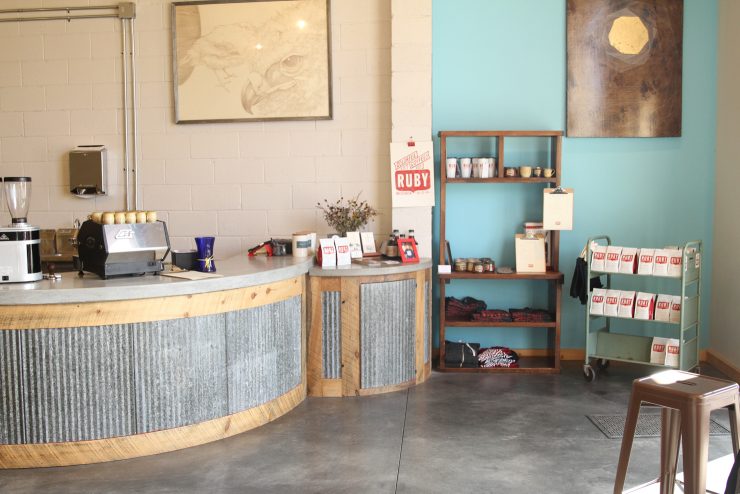
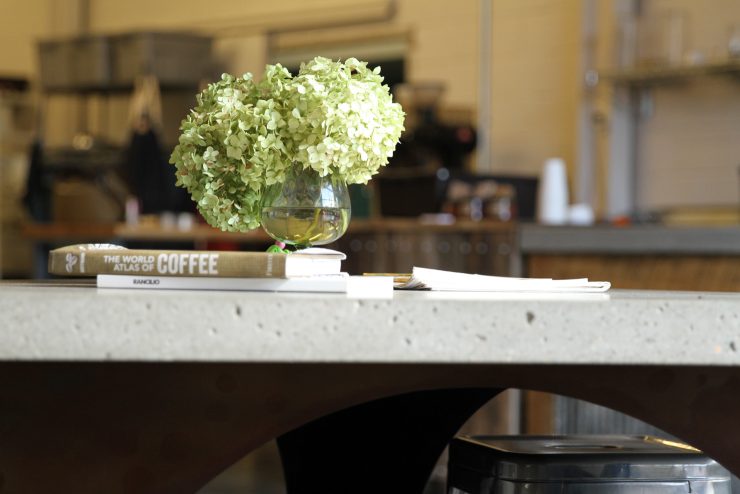
“We get people that come through from all over, from Madison and Milwaukee and Appleton, —a significant percentage are coming from 2-3 hours away and building it into a weekend,” said Linzmeier, who says he’s enjoyed the new perspective of incorporating a much more local interaction to what’s so far been a wholesale and through-the-mail customer experience. “It’s not that we don’t love what we do all week long, but on Saturday we take a step back and are like wow, we’re serving Ethiopia Reko to our neighbors and hearing their thoughts and I think that it reminds us how to talk about the coffees,” says Linzmeier. “During the week we might be focusing on customers on a national level, these high-performing quality focused cafes, and then on Saturday it’s like, ‘what does Dave like to drink?'”
Beyond the tasting room, Ruby has been found at notable cafes around the country like Seattle’s Milstead & Co. (one of the roaster’s earliest customers), as well as Austin’s Caffé Medici, Volta Coffee in Gainesville, G&B Coffee and Go Get Em Tiger in Los Angeles, and H&H Bagels in New York. Ruby is also a longtime collaborator with Plover, WI brewer O’so, with whom they’ve fueled the coffee side of many beers, including their Convenient Distraction Imperial Porter, which uses Ruby’s Colombia Aguacate.
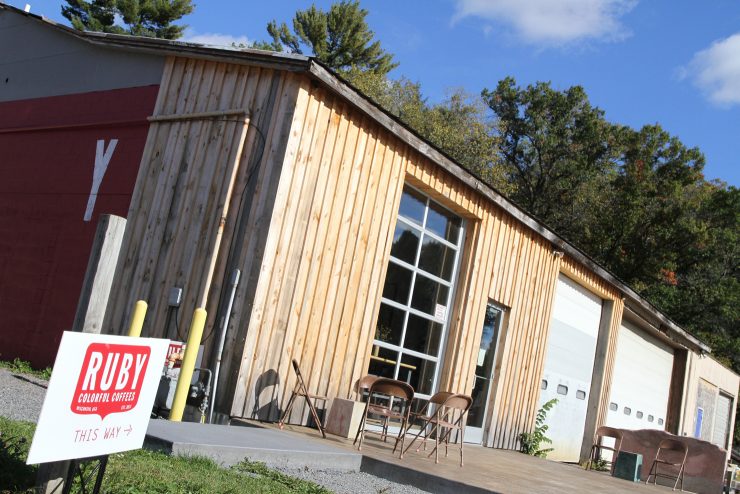
“I think that when I was looking at our place that I thought we could occupy, I wasn’t looking at ‘who’s roasting in Wisconsin?’,” said Linzmeier. “I was looking at my peer group and the kinds of coffees that we could put out and how we could deliver them. I was looking at ‘who in the world is doing stuff that I think is awesome, and how can I be a roaster,’ maybe not on that scale, but doing things that people would respect,” he continued.
“I wasn’t sure how that would look, but I thought that people would be into it.”
Now that we know how it looks—it seems Wisconsin was just the place.
Liz Clayton is the associate editor at Sprudge.com. Read more Liz Clayton on Sprudge.
The post A Trip to Ruby Coffee Roasters In Rural Wisconsin appeared first on Sprudge.


